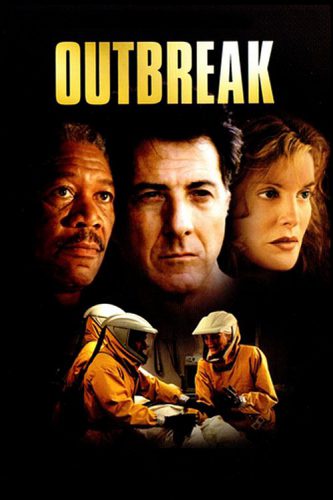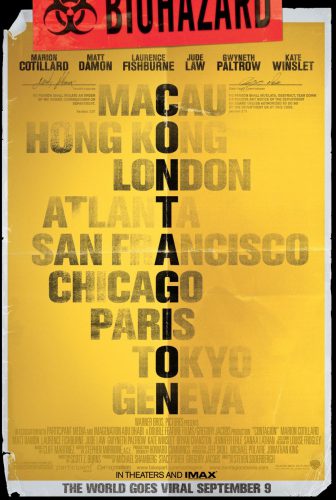
One of the oldest words in the history of hospital care is the French term “triage”—meaning, the sorting of patients. The practice of triage keeps a hospital organized (Intensive Care Unit here, Emergency Room there), but it also provides a way of prioritizing the care of patients. This is especially important on battlefields and in disaster zones, where the need for treatment can heavily outweigh the resources available. When the number of sick people is far greater than the number of doctors, triage provides a sieve for who sees the doctors first.
As you might guess, then, triage naturally moves medicine into the field of philosophy. In a moment of crisis and with a scarcity of resources, which human beings get help? This is the question posed by a recent Radiolab published late this summer, called “Playing God.” It’s based off the journalism of New York Times correspondent Sheri Fink, whose interest in triage was responsible for a book she wrote about Memorial Hospital in New Orleans. In the aftermath of Katrina, hundreds of sick patients were stranded at Memorial without power or means of evacuation. In 100-plus degree heat, many patients suffered and died in the parking garage, awaiting helicopters. In such critical circumstances, nurses and doctors were left with the appalling responsibility of choosing which patients got picked up first. The doctors began numbering the patients 1, 2, or 3, according to the order by which they’d be treated. By the end of the ordeal, doctors were wondering whether it was more humane to euthanize the sickest patients.
The catastrophe exposed a gaping, unanswered hole in talk about the ethics of triage in global crises like Katrina. If triage is meant to be an objective, ethical resource in such a time, what rule do you go by? As Radiolab tells it, there are historically two theories on how to deal with such a disaster: 1) provide care for the sickest first or 2) provide care on the basis of utility. Within the first theory, the sickest are given the attention they desperately need—but this model runs the risk of caring for those who might die within hours or days anyways, regardless of the care they receive. The second model, the utilitarian model, argues that you provide care based on the years of life you will supposedly save—saving the healthy ones, the young ones, the strong ones. This one, of course, runs the risk of callously rejecting care on the basis of a “utility” you are only really guessing at.
You can see where any solution gets to be damned-near impossible to defend. With every objective solution there are very subjective, very real human beings left to die.
 On the show, host Jad Abumrad talks with Sheri Fink about how doctors and researchers go about deciding which model to pick. In Baltimore, a group of doctors decided to hold a public debate and forum about these issues, in the hopes that a democratic decision could then be put forward for a national model. Bringing in residents from all walks of life and backgrounds, the forum pitched an exemplar medical disaster that would require tough triage decision-making: a flu pandemic sweeping the nation, remedied only by access to (a limited number of) ventilators. The groups are asked to discuss who gets ventilators first. The strong? The weak? The groups are given three options to begin with:
On the show, host Jad Abumrad talks with Sheri Fink about how doctors and researchers go about deciding which model to pick. In Baltimore, a group of doctors decided to hold a public debate and forum about these issues, in the hopes that a democratic decision could then be put forward for a national model. Bringing in residents from all walks of life and backgrounds, the forum pitched an exemplar medical disaster that would require tough triage decision-making: a flu pandemic sweeping the nation, remedied only by access to (a limited number of) ventilators. The groups are asked to discuss who gets ventilators first. The strong? The weak? The groups are given three options to begin with:
- Try to save the most lives or most years of life (young people, healthy people).
- Try to save the most “helpful” lives for survival (doctors, researchers, vaccine workers).
- Leave it up to fate (i.e. first come, first served; lotteries).
You’ll have to listen to the recording, but it’s pretty amazing that everyday Marylanders sit down over coffee and wrestle over an ethical question with such heavy consequences. And it is equally amazing how quickly certain principles became so stubbornly defended. Most argued that objectivity was of the first order—one woman argued to her focus group, “You can’t say that; there’s no room for emotions here!”—but the question of where that objective line was drawn came to be the point of friction.
Most interestingly, the standards almost always moved from questions of utility to questions of morality. One woman recorded on the podcast had a conundrum with what counted as “utility”:
You might have a young pastor, and you might have a reprehensible, alcoholic criminal and he might have more years to live, and yet the pastor is going to be more beneficial to society than the reprehensible one.
Maybe the virtuous young pastor sounds a bit quaint to your ears, but all of us have our own moral inventories working the same way, delineating chosens from not-chosens. The forum leaders eventually had to jump in and lay down some non-negotiables: certain identity markers were out of bounds, like race, economic status, or criminal history. In other words, there could be no moralizing. And yet, people couldn’t help themselves from moralizing. Jad from Radiolab describes it like this.
Utilitarian choices were fine. “Yea that person should get the ventilator because they’re going to benefit the greater good in some way.” But if that ever got formulated in a slightly different way, which is to say, “That person should get that ventilator because they deserve it more than another, because their life has more value”—then people were not cool with that. And yet you would hear people say that again and again and immediately be repulsed when they heard someone else say it that way.
In other words, the conversation always returned to the implicit and inevitable morality question: “Do you deserve to survive?”
 The more I thought about this episode, the more I saw how fittingly it represents the Law. The willingness of a bunch of Baltimore citizens to sit around and argue about it on a Saturday, to long to express the Law’s fullness in such a terribly opaque scenario, shows me that the belief in objective truth and justice is not lost on people. And the fact that these conversations so quickly go moral—regardless of whether we are capable moral judges or not—shows we still believe in a Moral Judge. We yearn for an objective line in the sand—a firm system that, whether you like it or not, is true.
The more I thought about this episode, the more I saw how fittingly it represents the Law. The willingness of a bunch of Baltimore citizens to sit around and argue about it on a Saturday, to long to express the Law’s fullness in such a terribly opaque scenario, shows me that the belief in objective truth and justice is not lost on people. And the fact that these conversations so quickly go moral—regardless of whether we are capable moral judges or not—shows we still believe in a Moral Judge. We yearn for an objective line in the sand—a firm system that, whether you like it or not, is true.
At the same time, a line in the sand in the middle a pandemic means death.
In the Radiolab story, Sheri Fink tells the story of assisting in a Haitian clinic after the massive earthquake in 2010—a very real triage parallel to the hypothetical one in Baltimore. Despite all the medical support flying into Port-au-Prince, there simply weren’t enough oxygen tanks to take care of all the patients who needed oxygen. She is introduced to a woman named Natalie who had “just won the hearts of the surgical staff.” She was a young woman whose entire family died in the earthquake, and she was incredibly grateful to this American staff who had taken her in. As much as the staff wanted to keep her at their clinic, though, the protocol wouldn’t allow it—her illness was too terminal to be kept on oxygen. So the doctors slowly weaned her off the oxygen, passed her over to a hospital where she would die. Fink describes riding in the ambulance with her as she began to have difficulty breathing—it’s terrible. She is one of the forces behind these kinds of protocol and she is riding in the ambulance alongside its newest victim.
This is where sinner and saint come together: Sheri says she couldn’t allow it to happen. As soon as Natalie arrived at the next hospital, she happens upon a miracle of unbelievable grace. An old colleague is working there, and she pulls him from his work to Natalie’s bedside. He is able to give her what little amounts of oxygen is left in the hospital, and Natalie is revived by a breach in proper triage. Fink even got Natalie a visa to get to the US for proper. In short, she broke her guidelines. Simon Adler, the producer of the show, asks Sheri from the back of the room:
Guidelines require a cold-hearted vision and a lack of compassion, and everything you’re talking about here has to do with compassion. How do you make compassion work on that large of a scale, without caring about people—and then you care about certain people more than other people, etc…
Which is to say, “What if Natalie weren’t such a nice person?” What if Natalie was a criminal, a pervert, a traitor? While a system cannot care at all, a human cannot care enough. And this is why we are sinners and saints—law-abiders and law-breakers—caring but never caring enough. Co-host Robert Krulwich tells Sheri she has landed on “an impossible piece of human business. Rationing, triage, whatever you want to call it, is an inhuman act which humans are trying to do, but the fact of their humanity makes it impossible.” Thanks be to God for Jesus, friend of those left for dead, with no shortage of ventilators.

COMMENTS
Leave a Reply













